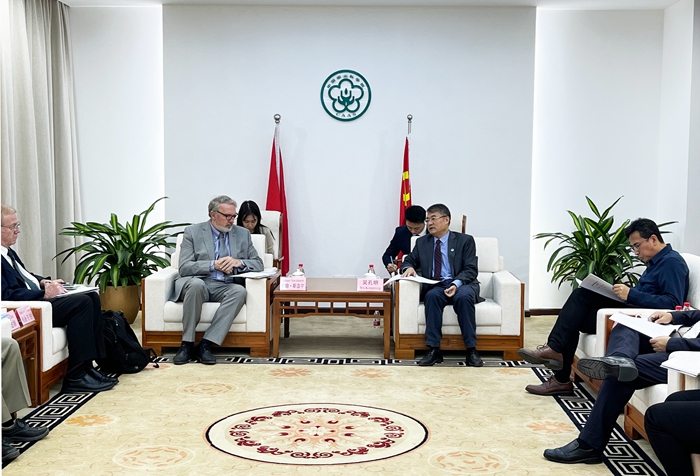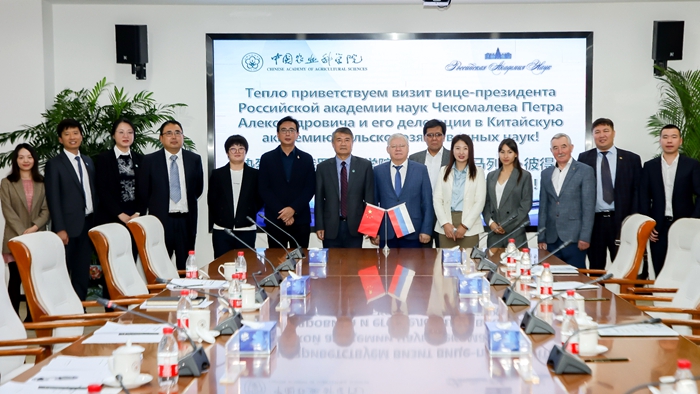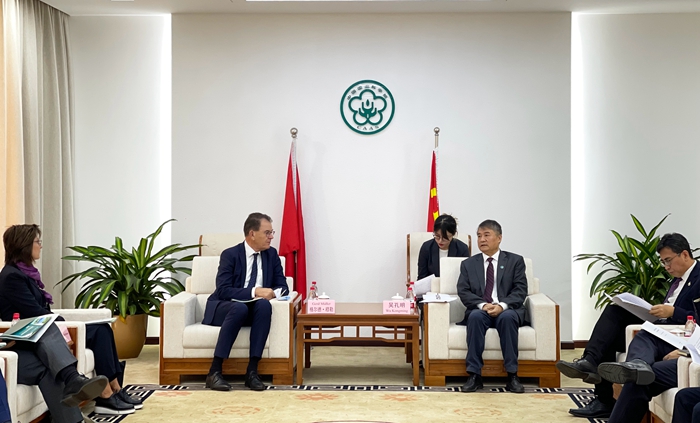Global Forum for TRI Directors held
The 4th Global Forum for Directors of Tea Research Institutes (Directors’ Forum) was held on 23-25 November at Tea Research Institute of CAAS (TRI, CAAS) in Hangzhou. Jointly hosted by TRI, CAAS and the China Tea Science Society (CTSS), the event attracted nearly 200 domestic and foreign participants from international organizations, tea research institutions, universities, and tea companies, both in person and online.
The opening ceremony was presided over by Prof. Ruan Jianyun, Deputy Director General of TRI, CAAS.

The Directors’ Forum, being held successfully for four consecutive times, has evolved from a high-level dialogue in tea science to an inclusive platform that is built by, built with, and built for all the tea research institutions in and outside China, said Prof. Jiang Renhua, Director General of TRI CAAS, when he was reviewing the history of the event in his welcome remarks. Jiang introduced the Institute’s major research achievements in recent years and called for further cooperation between institutes in terms of collaborative research, resource mobilization and talent training within the framework of the Forum.
Prof. Sun Tan, Vice-president of CAAS, addressed the opening ceremony. Tea is the world’s second most-consumed drink only after water and an important cash crop for developing countries, remarked by Sun, adding that CAAS has adopted a number of measures, including funding collaborative research projects, launching English academic journals, enabling early-career tea scientists, and supporting capacity building in Southeast Asia, to promote the development of tea science and technology. Sun placed great hope on the Forum as a mechanism that offer insights into major issues in tea research and encouraged the participants to further tap potentials for mutually beneficial cooperation.

Dr. El Mamoun Amrouk, Senior Economist from the Markets and Trade Division of FAO, provided an overview of the global tea market. He stressed that innovation and technology can play a positive role in shaping tea market prospects. The use of new technologies, such as satellite mapping, remote sensing, automated processing and chromatography, in the planting, processing and marketing of tea would all make a difference, suggested Dr. Amrouk.
Subsequent to the opening ceremony, the directors of 8 national tea research institutes across the world gave keynote speeches at the plenary session and shared the latest trends in the development of tea science and the tea industry in each country.
New cooperation agreement between TRICAAS and KALRO
On the occasion of the Directors’ Forum, TRI signed a Memorandum of Understanding with Kenya Agriculture and Livestock Research Organization (KALRO), Kenya’s national agricultural research body, in order to guide their cooperation for the coming five year period from 2022 to 2027.
The MoU, based on existing close cooperation, opens the door to wider collaboration and more profound exchanges between the two institutions in areas of mutual interested such as tea processing, carbon neutrality in tea plantations, etc.
Sub-forum on tea and health
The second day of the event was featured by a sub-forum themed on metabolism of functional components in tea, nutritional and health functions of tea, and diversified utilization of tea, answering the increasing attention to human-health-related research in academia. 15 scientists from renowned domestic and foreign universities and research institutions presented their latest research results on the above themes via video link.
By Zhou Ximai (zhouximai@www.comparadata.com)
-
 Nov 09, 2023CAAS President Meets with IFPRI Director General
Nov 09, 2023CAAS President Meets with IFPRI Director General -
 Nov 09, 2023CAAS President Meet with Vice President of Russian Academy of Sciences
Nov 09, 2023CAAS President Meet with Vice President of Russian Academy of Sciences -
 Nov 09, 2023CAAS President Meets with UNIDO Director General
Nov 09, 2023CAAS President Meets with UNIDO Director General -
 Nov 07, 2023Strengthen International Cooperation and Knowledge Sharing to Promote Sustainable Fall Armyworm Control Globally
Nov 07, 2023Strengthen International Cooperation and Knowledge Sharing to Promote Sustainable Fall Armyworm Control Globally -
 Nov 02, 20232023 International Symposium on Plant Biosafety Held in Yunnan
Nov 02, 20232023 International Symposium on Plant Biosafety Held in Yunnan
